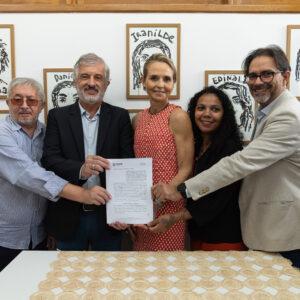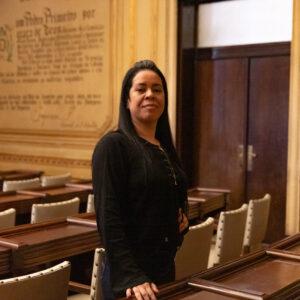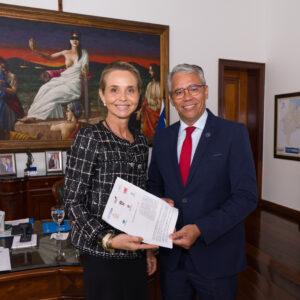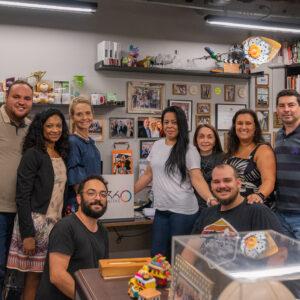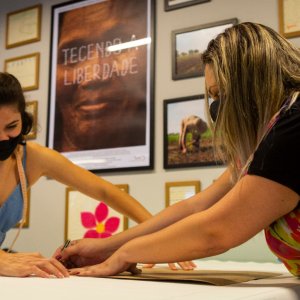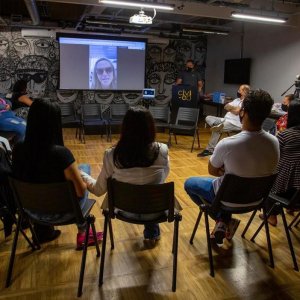The following article was originally published in Portuguese in the newspaper Folha de S. Paulo on April 12, 2024. Brazil has a sad tradition of public figures who, unable to present adequate solutions to the problems they should solve, resort to simple formulas and easy ways out. The strategy is used by administrators who prefer...
Tag: ressocialization
Article in CIVI-CO Mag: “Justice, citizenship and entrepreneurship”
The following article, written by the president of the Humanitas360 Institute, Patrícia Villela Marino, was published in CIVI-CO Mag, a publication of the CIVI-CO social impact hub, in October. A series of preconceptions hover over the North and Northeast of Brazil that prevent us from seeing the region’s potential, without neglecting its socioeconomic challenges. The...
Article in Estadão: “We need to ensure that Brazil’s criminal policies have continuity”
The following article, written by the president of the Humanitas360 Institute, Patrícia Villela Marino, was published by the newspaper O Estado de S. Paulo on October 10, 2023. At the beginning of October, the Supreme Federal Court (STF) unanimously decided that federal and state governments must develop a plan to combat problems in the prison...
H360 signs cooperation agreement with UEMA and opens Tereza store in São Luís
On May 30th, in São Luís, Maranhão, the Humanitas360 Institute signed a Technical Cooperation Agreement with the UEMA Agency for Innovation, Entrepreneurship and Institutional Relations – Marandu. On the occasion, the president of H360, Patrícia Villela Marino, and the dean of the State University of Maranhão, Walter Canales Sant’Ana, celebrated the partnership, which combines the...
UOL: Flávia Maria da Silva tells her story, from prison to freedom, and recalls work with H360 cooperatives
The following article was published on the UOL website on May 9, 2023 by journalist Maurício Businari. Widowed at 16, she became a ‘drug lord’ in São Paulo: ‘A cursed legacy’ She met her husband at 15, “an overwhelming passion”. At 16, she gave birth to a boy. She found out the love of her...
H360 signs new Cooperation Agreement with Maranhão authorities to expand actions in the state
On April 27th, a Technical Cooperation Agreement was signed to guarantee three more years of operation for the social cooperative created by the Humanitas360 Institute in São Luís, Maranhão. Held at the headquarters of the State Court of Justice, the ceremony celebrated the continuity of the work started in 2020 at the Women’s Prison Unit...
New Cooperation Agreement to expand H360’s impact in Maranhão
The Humanitas360 Institute and several instances of power in Maranhão are finalizing a new Technical Cooperation Agreement, which should be signed in the next few days at the State Court of Justice. The agreement will allow the continuity of the work of the Cuxá Social Cooperative, created by H360 in 2020, for another three years....
Welcome, Flávia Maria da Silva!
The ecosystem of social cooperatives of imprisoned women and victims of domestic violence, created by the Humanitas360 Institute and materialized in the Tereza brand, has gone through many transformations since its creation five years ago. In all these phases, Flávia Maria da Silva played a fundamental role. Her inclination for leadership has been felt since...
THE NEW CASA TEREZA: Tereza is back – and with a new home!
In October 2020, one of Humanitas360’s civic-social projects – Casa Tereza – returned to its activities, but now, closer to us: within the CIVI-CO space! Here, the members of the cooperative receive all the necessary support to continue with the Tereza brand. And there is more: the new collection is already in production – and...
H360 welcomes members from Casa Tereza at CIVI-CO for Holiday Get-together
On December 22nd, the Humanitas360 Institute had the opportunity to close the 2020 cycle in a special event together with the Lili Co-Op. To celebrate our evolution throughout the year and make the activities of the Casa Tereza project official, our team planned a reception in the CIVI-CO space, respecting health and social distance regulations....




